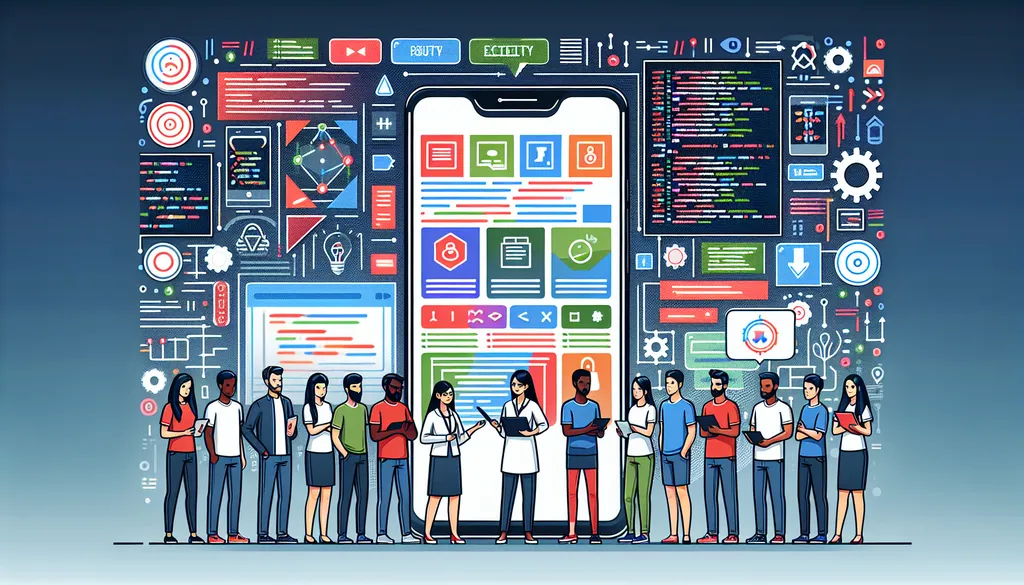Comprehensive Mobile App Development Solutions
Comprehensive Mobile App Development Solutions: A Complete Guide

In today’s fast-paced digital world, mobile apps have become an essential tool for businesses to engage with their customers, streamline operations, and drive revenue growth. The demand for mobile applications continues to soar as users increasingly rely on smartphones and tablets for everything from shopping and banking to entertainment and communication. To meet this growing demand, businesses need comprehensive mobile app development solutions that cover every aspect of the app lifecycle — from ideation and design to development, testing, deployment, and maintenance.
In this blog post, we will explore the key components of comprehensive mobile app development solutions, the benefits they offer, and best practices to ensure the success of your mobile app project.
What Are Comprehensive Mobile App Development Solutions?
Comprehensive mobile app development solutions encompass an end-to-end approach to building mobile applications. Unlike fragmented services that focus solely on coding or UI design, these solutions integrate multiple phases and disciplines to deliver a seamless, high-quality app that meets business objectives and user expectations.
A full-fledged mobile app development solution typically includes:
- Market Research & Requirements Analysis: Understanding the target audience, competitors, and the app’s purpose.
- UI/UX Design: Creating engaging, intuitive interfaces and smooth user journeys.
- Development: Writing clean, efficient code for platforms such as iOS, Android, or cross-platform.
- Quality Assurance & Testing: Rigorous testing to identify and fix bugs, ensure performance, and verify compatibility.
- Deployment: Publishing the app on app stores and managing releases.
- Maintenance & Support: Regular updates, performance monitoring, and issue resolution.
- Analytics & Optimization: Tracking user behavior and app performance to make data-driven improvements.
Why Choose Comprehensive Solutions?
Choosing a comprehensive mobile app development service provides several advantages:
1. Streamlined Communication and Project Management
Working with a single provider or team responsible for the entire process reduces the risk of miscommunication and project delays. It also enables better coordination among designers, developers, and testers.
2. Consistent Quality and Cohesive User Experience
Integrated teams ensure that the app’s design and functionality align perfectly with the initial vision and business goals, resulting in a polished, user-friendly product.
3. Cost and Time Efficiency
Bundling services often leads to lower overall costs and faster development cycles due to optimized workflows, reuse of components, and better resource allocation.
4. Better Post-Launch Support
Ongoing maintenance and updates are crucial to an app’s success. Comprehensive solutions typically include long-term support, helping your app stay relevant and competitive.
Key Components of Comprehensive Mobile App Development
Market Research and Strategy
Before development begins, thorough market research is essential. This phase involves:
- Identifying target users and their needs.
- Analyzing competitors and market trends.
- Defining key features and value propositions.
- Establishing success metrics and monetization strategies.
A solid strategy ensures that the app addresses real problems and has a clear business purpose.
UI/UX Design
User experience is a critical factor that can make or break an app. The design process should focus on:
- Wireframing and prototyping to visualize the app flow.
- Creating visually appealing and accessible interfaces.
- Ensuring smooth navigation and quick load times.
- Incorporating brand identity and design guidelines.
Designers often use tools like Sketch, Figma, or Adobe XD to create designs that developers can efficiently implement.
Development
Development can be approached in various ways depending on the platform and project requirements:
- Native Development: Using Swift/Objective-C for iOS and Kotlin/Java for Android to build platform-specific apps that offer the best performance and access to device features.
- Cross-Platform Development: Using frameworks like React Native, Flutter, or Xamarin to write code once and deploy on multiple platforms, reducing time and cost.
- Backend Development: Creating APIs, databases, and server-side logic to support app functionality.
Experienced developers follow best coding practices, version control, and continuous integration to ensure high-quality code.
Testing and Quality Assurance
Comprehensive testing ensures the app functions correctly under various conditions. Testing types include:
- Functional Testing: Verifying all features work as intended.
- Performance Testing: Checking app responsiveness and stability under load.
- Compatibility Testing: Ensuring the app works on different devices, OS versions, and screen sizes.
- Security Testing: Identifying vulnerabilities to protect user data.
- Usability Testing: Gathering user feedback to improve the interface.
Automated and manual testing methods are often combined for thorough coverage.
Deployment and Launch
Launching the app involves:
- Preparing app store listings with descriptions, screenshots, and keywords.
- Complying with platform guidelines and regulations.
- Managing app store submissions and approvals.
- Setting up analytics and monitoring tools.
A well-planned launch strategy includes marketing efforts to maximize visibility and downloads.
Maintenance and Updates
Post-launch maintenance is crucial for fixing bugs, introducing new features, and adapting to OS updates or user feedback. Regular updates improve app performance and user satisfaction.
Analytics and Optimization
Data-driven insights help optimize the app by tracking:
- User engagement and retention rates.
- Feature usage.
- Crash reports.
- Conversion rates.
Analyzing this data enables continuous improvement and better ROI.
Best Practices for Successful Mobile App Development
Define Clear Objectives
Start with a clear understanding of what you want to achieve with your app. Set measurable goals and prioritize features accordingly.
Prioritize User Experience
Focus on creating an intuitive and enjoyable experience. Consider accessibility and usability from the start.
Adopt Agile Methodologies
Use iterative development cycles to adapt quickly to changes and gather user feedback early.
Ensure Security and Privacy
Implement robust security measures to protect sensitive data and comply with regulations such as GDPR or HIPAA.
Test Early and Often
Incorporate testing throughout the development process to catch issues early and maintain quality.
Plan for Scalability
Design your app architecture to handle growth in users and features without compromising performance.
Invest in Marketing
Build a marketing plan that includes app store optimization, social media promotion, and user engagement strategies.
Conclusion
Comprehensive mobile app development solutions provide a holistic approach to building mobile applications that succeed in the competitive digital marketplace. By covering every stage from research and design to deployment and maintenance, these solutions help businesses deliver high-quality apps that meet user needs and drive business value.
Partnering with experienced mobile app developers who offer end-to-end services can save time, reduce costs, and enhance the overall quality of your app. Whether you’re launching a startup app or enhancing an enterprise solution, investing in a comprehensive development strategy is the key to achieving long-term success.
If you’re ready to bring your mobile app idea to life with a comprehensive development partner, start by defining your goals and researching potential providers who align with your vision and needs. With the right team and approach, your mobile app can become a powerful asset for your business growth and customer engagement.






